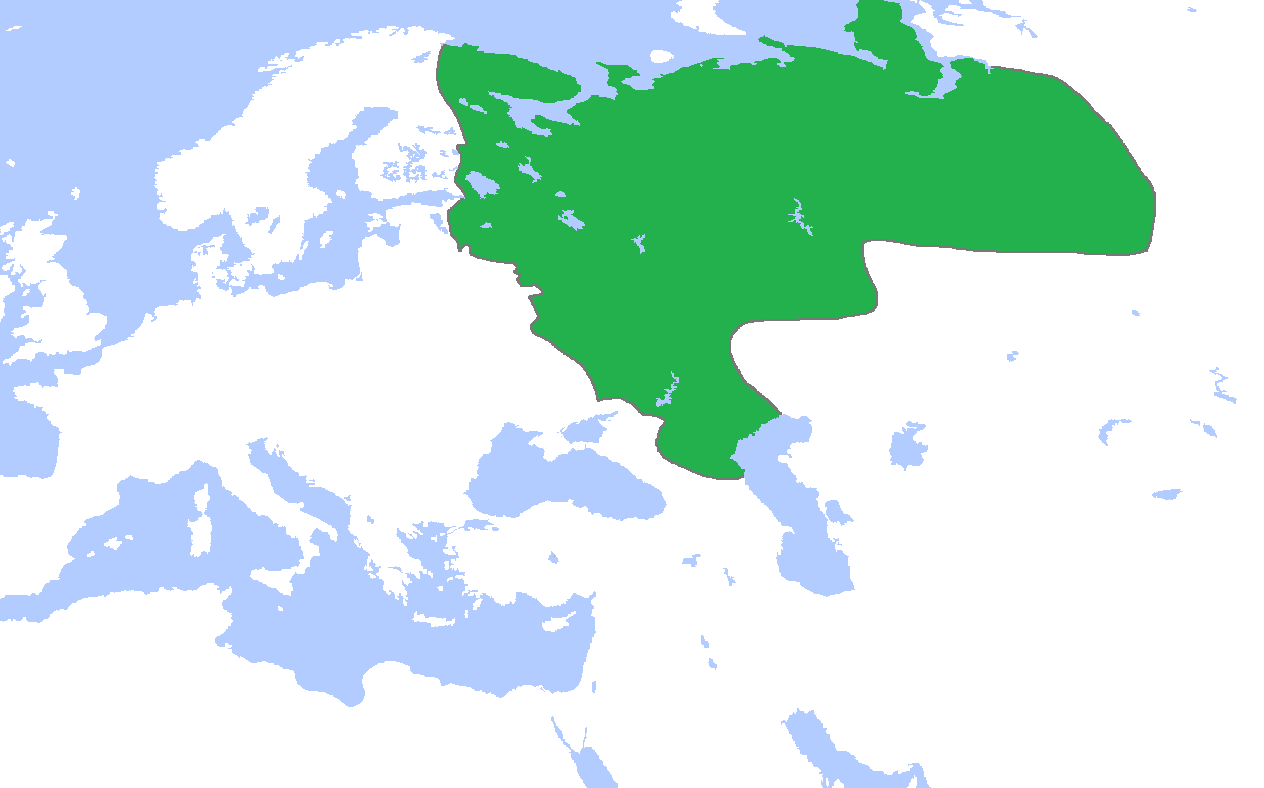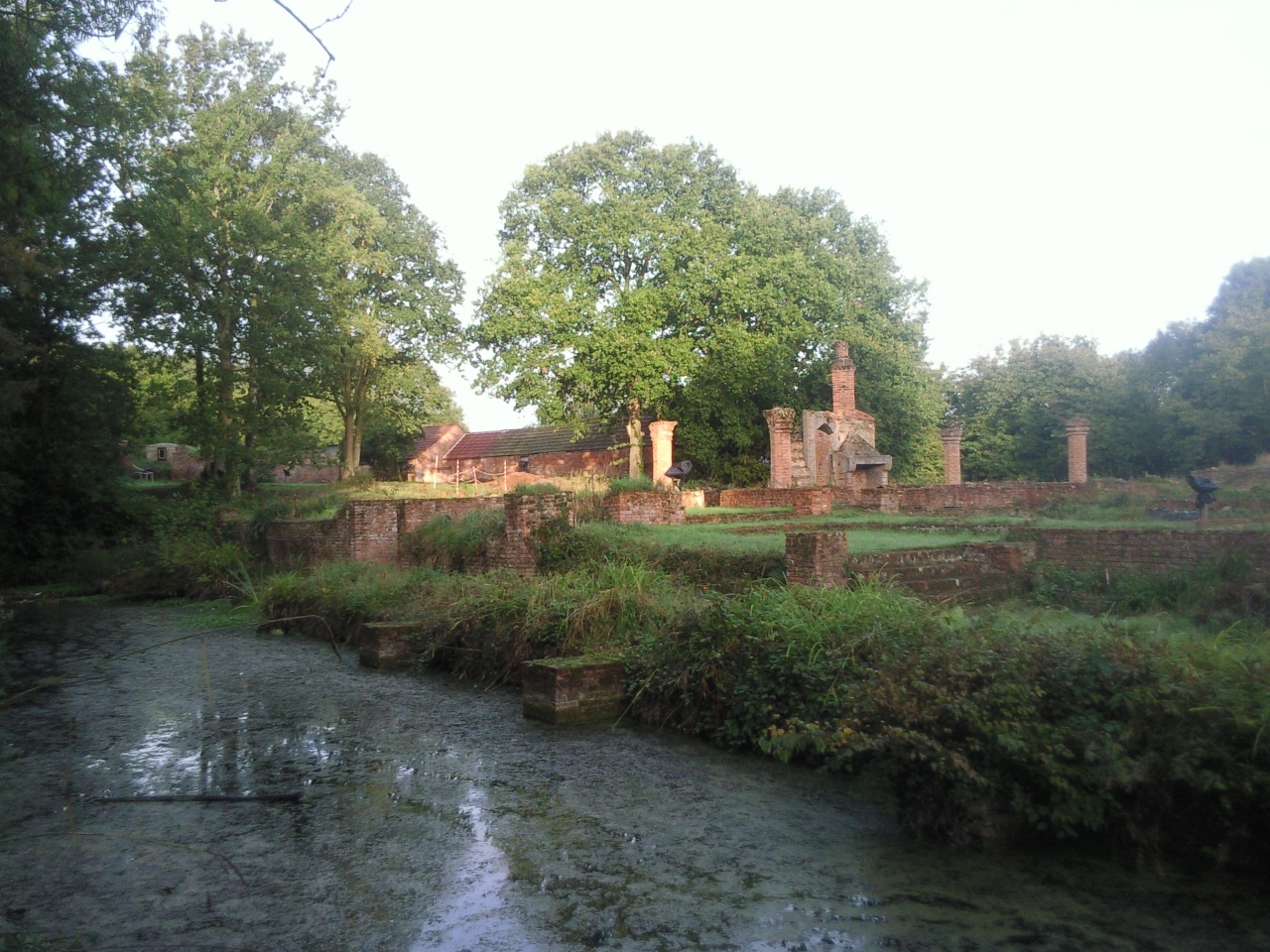|
Jerome Horsey
Sir Jerome Horsey (c. 1550 – 1626), of Great Kimble, Buckinghamshire, was an English explorer, diplomat and politician in the 16th and 17th centuries. He spent much time in Russia over the course of seventeen years, first arriving in 1573 and leaving in 1591. He got to know well many leading people at the Russian Court. He first travelled to Moscow as an agent for the Russia Company, and later acted as an envoy of Tsar Ivan the Terrible to Queen Elizabeth and then from the English court under Queen Elizabeth to Ivan. After returning to England, Horsey served in the House of Commons, sitting on many committees including the Committee for Returns, Elections, and Privileges. Knighted in 1603, he wrote accounts of his time in Russia which have been published several times, and was the subject of two novels. Family background Horsey was the son of William Horsey, a merchant at Exeter, by Elinor Peryam. He was the grandson of Sir John Horsey II of Sherborne, Dorset and nephew of ... [...More Info...] [...Related Items...] OR: [Wikipedia] [Google] [Baidu] |
Kostroma
Kostroma ( rus, Кострома́, p=kəstrɐˈma) is a historic city and the administrative center of Kostroma Oblast, Russia. A part of the Golden Ring of Russian cities, it is located at the confluence of the rivers Volga and Kostroma. Population: History Under the Rurikids The official founding year of the city is 1152 by Yury Dolgoruky.Official website of KostromaKostroma Today/ref> Since many scholars believe that early Eastern Slavs tribes arrived in modern-day Belarus, Ukraine and western Russia AD 400 to 600, Kostroma could be much older than previously thought. The city has the same name as the East Slavic goddess Kostroma. Like other towns of the Eastern Rus, Kostroma was sacked by the Mongols in 1238. It then constituted a small principality, under leadership of Prince Vasily of Kostroma, a younger brother of the famous Alexander Nevsky. Upon inheriting the grand ducal title in 1271, Vasily didn't leave the town for Vladimir, and his descendants ruled Kostroma ... [...More Info...] [...Related Items...] OR: [Wikipedia] [Google] [Baidu] |
Maria Of Livonia
Maria Vladimirovna of Staritsa (c. 1560 in – 13 May 1610) was a . She was the daughter of |
Boris Godunov
Borís Fyodorovich Godunóv (; russian: Борис Фёдорович Годунов; 1552 ) ruled the Tsardom of Russia as ''de facto'' regent from c. 1585 to 1598 and then as the first non-Rurikid tsar from 1598 to 1605. After the end of his reign, Russia descended into the Time of Troubles. Early years Boris Godunov was the most noted member of an ancient, now extinct, Russian family of Tatar origin ( Chet), which came from the Horde to Kostroma in the early 14th century. This cites: * Platon Vasilievich Pavlov, ''On the Historical Significance of the Reign of Boris Godunov'' (Rus.) (Moscow, 1850) * Sergyei Mikhailivich Solovev, ''History of Russia'' (Rus.) (2nd ed., vols. vii–viii., St Petersburg, 1897). This legend is written in the annals dating from early 17th century. He was descended from the Tatar Prince Chet, who went from the Golden Horde to Russia and founded the Ipatiev Monastery in Kostroma. Boris was probably born before or after the Kazan campaign. Boris was ... [...More Info...] [...Related Items...] OR: [Wikipedia] [Google] [Baidu] |
Vasily Shchelkanov
Vasili, Vasily, Vasilii or Vasiliy (Russian: Василий) is a Russian masculine given name of Greek origin and corresponds to ''Basil''. It may refer to: *Vasili I of Moscow Grand Prince from 1389–1425 *Vasili II of Moscow Grand Prince from 1425–1462 *Vasili III of Russia Tsar from 1505–1533 *Vasili IV of Russia Tsar from 1606–1610 *Basil Fool for Christ (1469–1557), also known as Saint Basil, or Vasily Blazhenny *Vasily Alekseyev (1942–2011), Soviet weightlifter *Vasily Arkhipov (1926–1998), Soviet Naval officer in the Cuban Missile Crisis *Vasily Boldyrev (1875–1933), Russian general *Vasily Chapayev (1887–1919), Russian Army commander *Vasily Chuikov (1900–1982), Soviet marschal *Vasily Degtyaryov (1880–1949), Russian weapons designer and Major General *Vasily Dzhugashvili (1921–1962), Stalin's son *Vasili Golovachov (born 1948), Russian science fiction author *Vasily Grossman (1905–1964), Soviet writer and journalist *Vasily Ignatenko (1961–1986 ... [...More Info...] [...Related Items...] OR: [Wikipedia] [Google] [Baidu] |
Fyodor I Of Russia
Fyodor I Ivanovich (russian: Фёдор I Иванович) or Feodor I Ioannovich (russian: Феодор I Иоаннович; 31 May 1557 – 17 January (NS) 1598), also known as Feodor the Bellringer (russian: Феодор Звонарь), reigned as Tsar of Russia from 1584 until his death in 1598. Feodor's mother died when he was three, and he grew up in the shadow of his father, Ivan the Terrible. A pious man of retiring disposition, Feodor took little interest in politics, and the country was effectively administered in his name by Boris Godunov, the brother of his beloved wife Irina. His childless death marked the end of the Rurik dynasty, and spurred Russia's descent into the catastrophic Time of Troubles. In Russian documents, Feodor is sometimes called ''blessed'' (russian: Блаженный). He is also listed in the "Great Synaxaristes" of the Orthodox Church, with his feast day on January 7 (OS). Background Feodor was born in Moscow, the son of Ivan IV (T ... [...More Info...] [...Related Items...] OR: [Wikipedia] [Google] [Baidu] |
Alexander Litovchenko - Ivan The Terrible Showing Treasures To The English Ambassador Jerome Horsey
Alexander is a male given name. The most prominent bearer of the name is Alexander the Great, the king of the Ancient Greek kingdom of Macedonia who created one of the largest empires in ancient history. Variants listed here are Aleksandar, Aleksander and Aleksandr. Related names and diminutives include Iskandar, Alec, Alek, Alex, Alexandre, Aleks, Aleksa and Sander; feminine forms include Alexandra, Alexandria, and Sasha. Etymology The name ''Alexander'' originates from the (; 'defending men' or 'protector of men'). It is a compound of the verb (; 'to ward off, avert, defend') and the noun (, genitive: , ; meaning 'man'). It is an example of the widespread motif of Greek names expressing "battle-prowess", in this case the ability to withstand or push back an enemy battle line. The earliest attested form of the name, is the Mycenaean Greek feminine anthroponym , , (/Alexandra/), written in the Linear B syllabic script. Alaksandu, alternatively called ''Alakasandu'' or ' ... [...More Info...] [...Related Items...] OR: [Wikipedia] [Google] [Baidu] |
Francis Walsingham
Sir Francis Walsingham ( – 6 April 1590) was principal secretary to Queen Elizabeth I of England from 20 December 1573 until his death and is popularly remembered as her "spymaster". Born to a well-connected family of gentry, Walsingham attended Cambridge University and travelled in continental Europe before embarking on a career in law at the age of twenty. A committed Protestant, during the reign of the Catholic Queen Mary I of England he joined other expatriates in exile in Switzerland and northern Italy until Mary's death and the accession of her Protestant half-sister, Elizabeth. Walsingham rose from relative obscurity to become one of the small coterie who directed the Elizabethan state, overseeing foreign, domestic and religious policy. He served as English ambassador to France in the early 1570s and witnessed the St. Bartholomew's Day massacre. As principal secretary, he supported exploration, colonization, the use of England's maritime strength and the ... [...More Info...] [...Related Items...] OR: [Wikipedia] [Google] [Baidu] |
Robert Dudley, 1st Earl Of Leicester
Robert Dudley, 1st Earl of Leicester, (24 June 1532 – 4 September 1588) was an English statesman and the favourite of Elizabeth I from her accession until his death. He was a suitor for the queen's hand for many years. Dudley's youth was overshadowed by the downfall of his family in 1553 after his father, John Dudley, 1st Duke of Northumberland, The 1st Duke of Northumberland, had failed to prevent the accession of Mary I. Robert Dudley was condemned to death but was released in 1554 and took part in the Battle of St. Quentin (1557), Battle of St. Quentin under Mary's husband and co-ruler, Philip II of Spain, Philip, which led to his full rehabilitation. On Elizabeth I's accession in November 1558, Dudley was appointed Master of the Horse. In October 1562, he became a Privy Council of England, privy councillor and, in 1587, was appointed Lord Steward of the Royal Household. In 1564, Dudley became Earl of Leicester and, from 1563, one of the greatest landowners in North Wales ... [...More Info...] [...Related Items...] OR: [Wikipedia] [Google] [Baidu] |
Lübeck
Lübeck (; Low German also ), officially the Hanseatic City of Lübeck (german: Hansestadt Lübeck), is a city in Northern Germany. With around 217,000 inhabitants, Lübeck is the second-largest city on the German Baltic coast and in the state of Schleswig-Holstein, after its capital of Kiel, and is the 35th-largest city in Germany. The city lies in Holstein, northeast of Hamburg, on the mouth of the River Trave, which flows into the Bay of Lübeck in the borough of Travemünde, and on the Trave's tributary Wakenitz. The city is part of the Hamburg Metropolitan Region, and is the southwesternmost city on the Baltic, as well as the closest point of access to the Baltic from Hamburg. The port of Lübeck is the second-largest German Baltic port after the port of Rostock. The city lies in the Northern Low Saxon dialect area of Low German. Lübeck is famous for having been the cradle and the ''de facto'' capital of the Hanseatic League. Its city centre is Germany's most extens ... [...More Info...] [...Related Items...] OR: [Wikipedia] [Google] [Baidu] |
Damask
Damask (; ar, دمشق) is a reversible patterned fabric of silk, wool, linen, cotton, or synthetic fibers, with a pattern formed by weaving. Damasks are woven with one warp yarn and one weft yarn, usually with the pattern in warp-faced satin weave and the ground in weft-faced or sateen weave. Twill damasks include a twill-woven ground or pattern.Kadolph, Sara J., ed.: ''Textiles'', 10th edition, Pearson/Prentice-Hall, 2007, , p. 251Monnas, Lisa. ''Merchants, Princes and Painters: Silk Fabrics in Italian and Northern Paintings 1300–1550''. New Haven, Yale University Press, 2008, pp. 295–299 History The production of damask was one of the five basic weaving techniques—the others being tabby, twill, lampas, and tapestry—of the Byzantine and Middle Eastern weaving centres of the early Middle Ages.Jenkins, David T., ed.''The Cambridge History of Western Textiles'' Cambridge, UK: Cambridge University Press, 2003, , p. 343. Used in daily nomadic life this form of weaving was ... [...More Info...] [...Related Items...] OR: [Wikipedia] [Google] [Baidu] |
Hamburg
(male), (female) en, Hamburger(s), Hamburgian(s) , timezone1 = Central (CET) , utc_offset1 = +1 , timezone1_DST = Central (CEST) , utc_offset1_DST = +2 , postal_code_type = Postal code(s) , postal_code = 20001–21149, 22001–22769 , area_code_type = Area code(s) , area_code = 040 , registration_plate = , blank_name_sec1 = GRP (nominal) , blank_info_sec1 = €123 billion (2019) , blank1_name_sec1 = GRP per capita , blank1_info_sec1 = €67,000 (2019) , blank1_name_sec2 = HDI (2018) , blank1_info_sec2 = 0.976 · 1st of 16 , iso_code = DE-HH , blank_name_sec2 = NUTS Region , blank_info_sec2 = DE6 , website = , footnotes ... [...More Info...] [...Related Items...] OR: [Wikipedia] [Google] [Baidu] |






